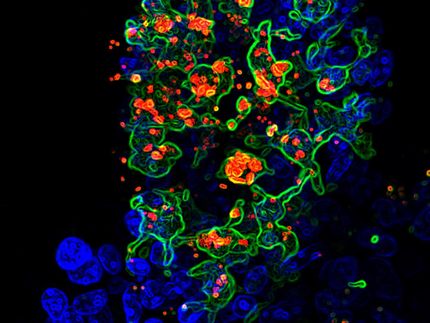Scientists Discover New Gene Associated with Crohn's Disease
Applied Biosystems Genotyping Technologies Uncover New Support for Role of Abnormal Immune Response to Intestinal Bacteria in the Disease
Scientists have discovered another piece of the genetic puzzle that may predispose humans to Crohn's disease, a complex disorder characterized by chronic inflammation of the digestive tract. The findings may also suggest new strategies for treating this chronic, debilitating disease.
Researchers from the University Hospital of the Christian-Albrechts University in Kiel, Germany and Applied Biosystems, an Applera Corporation Business, have identified and characterized a novel genetic variation in a gene not previously associated with the disorder that provides further evidence that an abnormal immune response to bacteria in the digestive tract may lead to the intestinal inflammation characteristic of the disease.
The research team tested DNA samples from patients with Crohn's disease using the Applied Biosystems SNPlex(TM) Genotyping System. As part of the genotyping study, the team conducted a genome-wide association scan of approximately 20,000 "coding" genetic variants that are thought to produce functional changes at the protein level.
Among their findings, the researchers identified a protein-coding genetic variation (a single nucleotide polymorphism, or 'SNP') in the autophagy-related 16-like (ATG16L1) gene. Neither the ATG16L1 gene, nor this specific genetic variation, has been previously implicated in Crohn's disease. The ATGI6LI gene is part of the autophagosome biological pathway, which normal cells use to destroy harmful bacteria.
"With further evidence that genetic factors may be compromising the defenses of the intestinal barrier in Crohn's disease, we believe pharmaceutical researchers have an opportunity to design new therapies that may address the root cause, not just the symptoms, of this chronic disease," explained Francisco De La Vega, Ph.D., Scientific Fellow, Applied Biosystems. "We plan to continue using this targeted approach with coding SNPs to study this and other complex diseases."
Original publication: Nature Genetics 2007.
Most read news
Topics
Organizations
Other news from the department science

Get the life science industry in your inbox
By submitting this form you agree that LUMITOS AG will send you the newsletter(s) selected above by email. Your data will not be passed on to third parties. Your data will be stored and processed in accordance with our data protection regulations. LUMITOS may contact you by email for the purpose of advertising or market and opinion surveys. You can revoke your consent at any time without giving reasons to LUMITOS AG, Ernst-Augustin-Str. 2, 12489 Berlin, Germany or by e-mail at revoke@lumitos.com with effect for the future. In addition, each email contains a link to unsubscribe from the corresponding newsletter.



















































